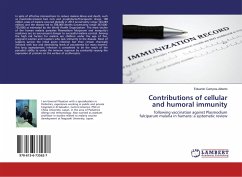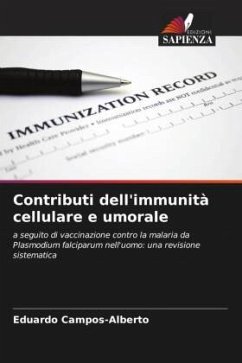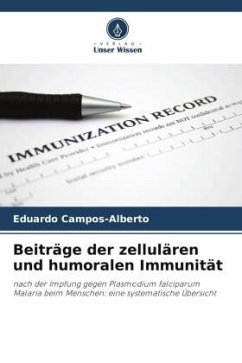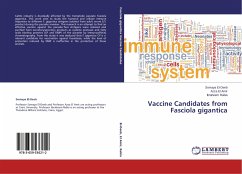
Contributions of cellular and humoral immunity
following vaccination against Plasmodium falciparum malaria in humans: a systematic review
Versandkostenfrei!
Versandfertig in 6-10 Tagen
24,99 €
inkl. MwSt.

PAYBACK Punkte
12 °P sammeln!
In spite of effective interventions to reduce malaria illness and death, such as insecticide-treated bed nets and prophylactic/therapeutic drugs, 198 million cases of malaria occured globally in 2013 (uncertainty range 124-283 million) and the disease led to 548,000 deaths (uncertainty range 367,000-755,000) as estimated by the World Health Organization. The most virulen of the human malaria parasites Plasmodium falciparum and mosquito's resistance are an ever-present danger to successful malaria control. Among the high risk factors for malaria are children under the age of five, pregnant wome...
In spite of effective interventions to reduce malaria illness and death, such as insecticide-treated bed nets and prophylactic/therapeutic drugs, 198 million cases of malaria occured globally in 2013 (uncertainty range 124-283 million) and the disease led to 548,000 deaths (uncertainty range 367,000-755,000) as estimated by the World Health Organization. The most virulen of the human malaria parasites Plasmodium falciparum and mosquito's resistance are an ever-present danger to successful malaria control. Among the high risk factors for malaria are children under the age of five, pregnant women and travelers who lack immunity to the disease. Most of subjects survive the initial acute infection but then remain chonically infected with low and diminishing levels of parasitemia for many months, this long asymptomatic infection is considered to be the result of the parasite's ability to evade the immune response by constantly varying the expression of proteins on the surface of erythrocytes.












